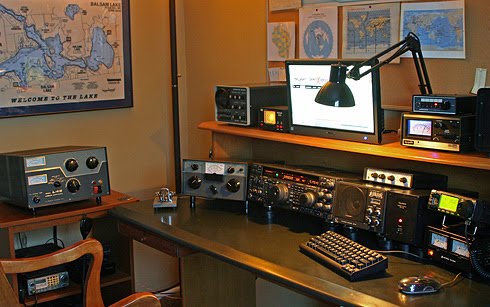Amateur Radio enthusiasts know that there’s a lot of knowledge and training that go into being a successful Amateur Radio operators (hams). Before you can get on the air, you need to be licensed.
 The rules for earning an Amateur Radio license vary depending on which country you live in. You need to know the rules to operate legally. You also need to know how to operate safely and you’ll need some knowledge and training to operate successfully.
The rules for earning an Amateur Radio license vary depending on which country you live in. You need to know the rules to operate legally. You also need to know how to operate safely and you’ll need some knowledge and training to operate successfully.Getting licensed is a long standing tradition for hams. US licenses are good for 10 years before renewal, and anyone may hold one except a representative of a foreign government.
Here are some tips for getting your amateur radio license:
1. Contact a local Ham radio club. Many clubs will have members who can mentor or "elmer" you. Take advantage of that. Ham radio operators are always looking for new people to talk to and share the hobby with so they will be glad to help you. Almost certainly, some member will be willing to let you talk on his radio and see if you like it.
2. Read a good Ham License Book or go to classes provided by a club
One of the best sources for ham radio license exam information is The ARRL. This is the national organization for ham radio. It contains lists of ham radio license exams (locations, times, check-in procedures, etc.).
4. Go take your test. Don't worry, it's really not that hard if you study the question pools.
There are three levels of ham radio licenses. Technician (basic - low power), General (more power - more frequencies) and Extra (highest power allowed - most frequencies allowed). Take the Technician license exam first. You can also take practice exams on-line as for free or for pay as well. Take the practice exams.
5. Once you pass the test, buy a radio and use it. Don't be intimidated. When you make contact for the first time, let your contact know it's your first time and he will probably help you along.
It's a great time to be involved in Ham Radio. Getting involved is easier than it has ever been and there is a huge supply of radios. Now it's your turn to get started in Ham radio today.
Check Out My Other Guide on Ham Radio - Overview

